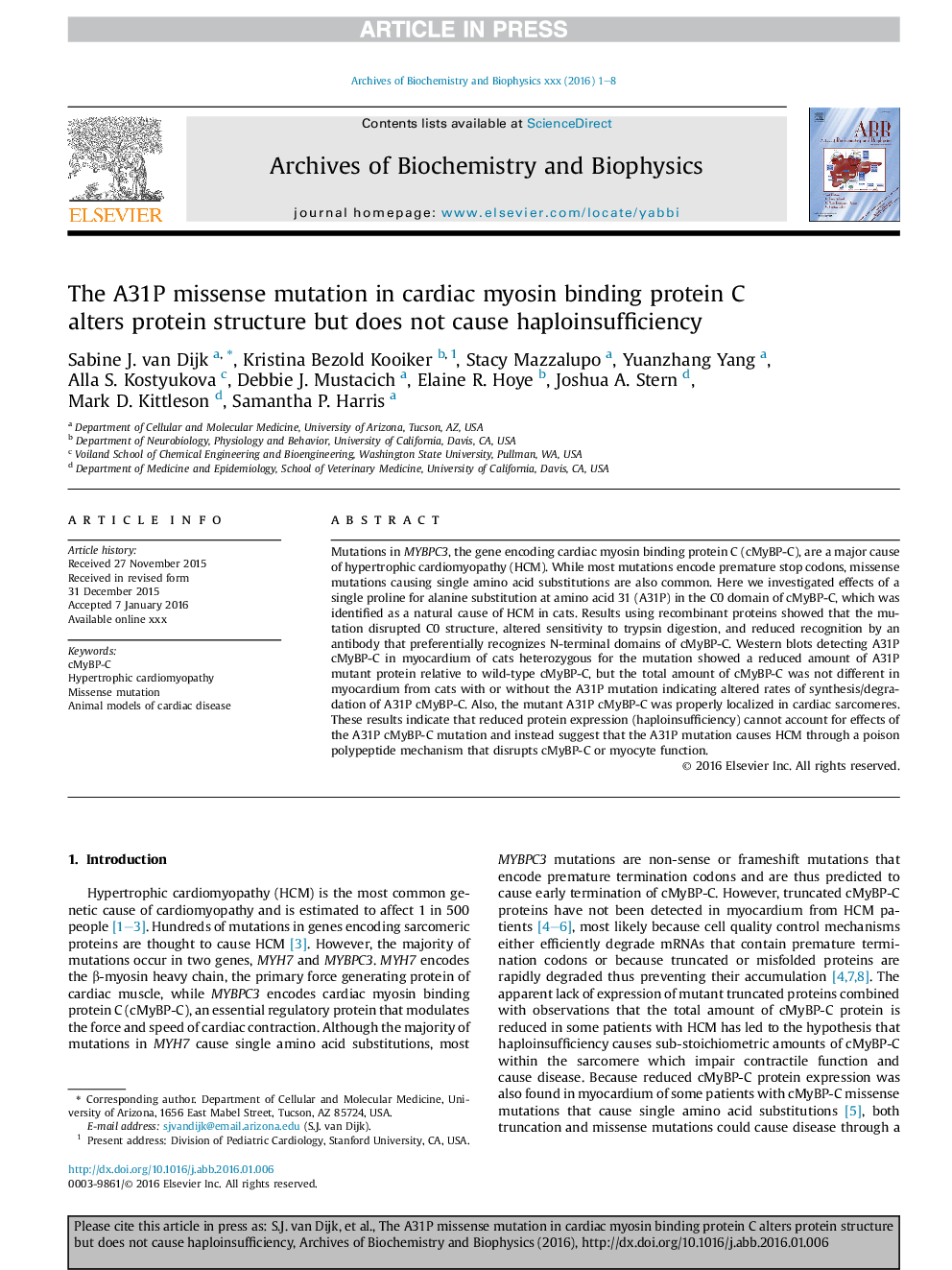| Article ID | Journal | Published Year | Pages | File Type |
|---|---|---|---|---|
| 8289331 | Archives of Biochemistry and Biophysics | 2016 | 8 Pages |
Abstract
Mutations in MYBPC3, the gene encoding cardiac myosin binding protein C (cMyBP-C), are a major cause of hypertrophic cardiomyopathy (HCM). While most mutations encode premature stop codons, missense mutations causing single amino acid substitutions are also common. Here we investigated effects of a single proline for alanine substitution at amino acid 31 (A31P) in the C0 domain of cMyBP-C, which was identified as a natural cause of HCM in cats. Results using recombinant proteins showed that the mutation disrupted C0 structure, altered sensitivity to trypsin digestion, and reduced recognition by an antibody that preferentially recognizes N-terminal domains of cMyBP-C. Western blots detecting A31P cMyBP-C in myocardium of cats heterozygous for the mutation showed a reduced amount of A31P mutant protein relative to wild-type cMyBP-C, but the total amount of cMyBP-C was not different in myocardium from cats with or without the A31P mutation indicating altered rates of synthesis/degradation of A31P cMyBP-C. Also, the mutant A31P cMyBP-C was properly localized in cardiac sarcomeres. These results indicate that reduced protein expression (haploinsufficiency) cannot account for effects of the A31P cMyBP-C mutation and instead suggest that the A31P mutation causes HCM through a poison polypeptide mechanism that disrupts cMyBP-C or myocyte function.
Related Topics
Life Sciences
Biochemistry, Genetics and Molecular Biology
Biochemistry
Authors
Sabine J. van Dijk, Kristina Bezold Kooiker, Stacy Mazzalupo, Yuanzhang Yang, Alla S. Kostyukova, Debbie J. Mustacich, Elaine R. Hoye, Joshua A. Stern, Mark D. Kittleson, Samantha P. Harris,
